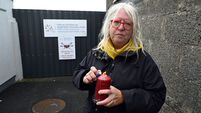Nurses told to ignore staffing directive

Some doctor grades, particularly in emergency medicine, are already resisting the directive by failing to present for shifts, albeit their gripe is linked to decreased pay rates.
Under the new directive, hospitals short of staff must give the designated “principal” locum agency in their area two hours to fill the position, regardless of how urgent the situation. A second agency can only be contacted if the first fails to meet the two-hour deadline. All agencies must be contacted electronically.













